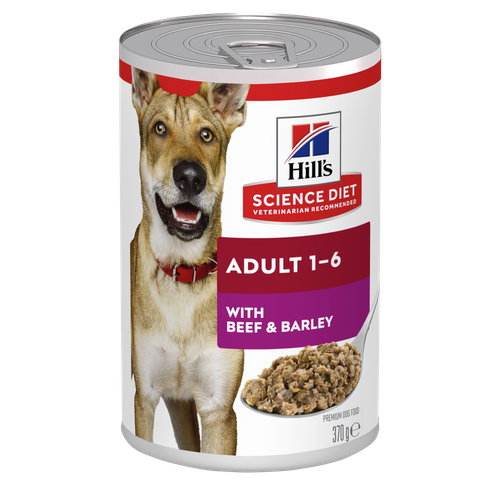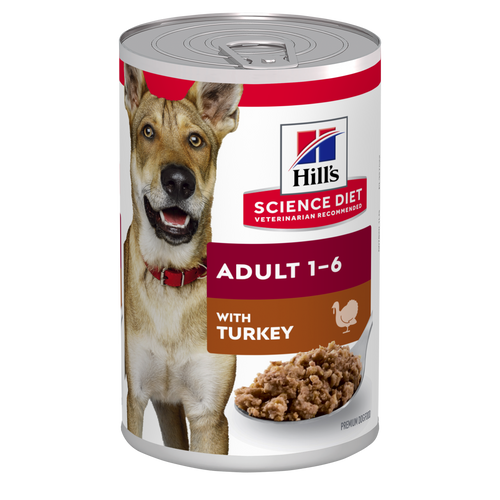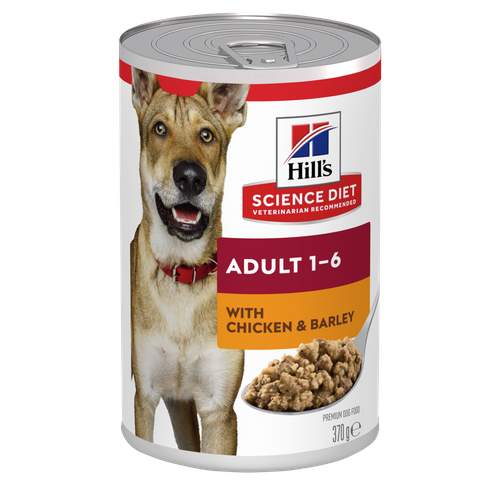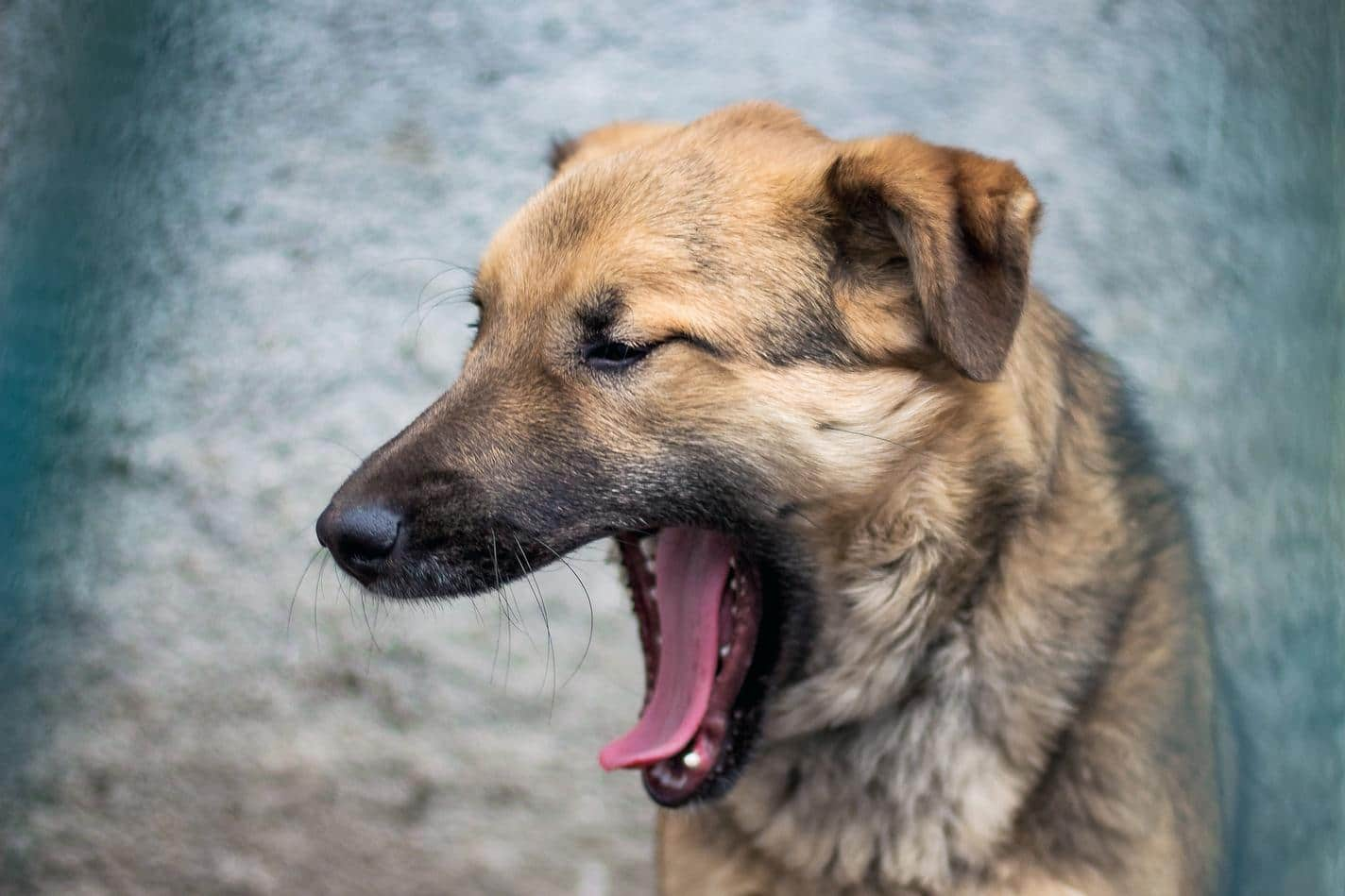
-
Find the right food for your petTake this quiz to see which food may be the best for your furry friend.Find the right food for your petTake this quiz to see which food may be the best for your furry friend.Health CategoryFeatured products
 Adult with Beef & Barley Dog Food
Adult with Beef & Barley Dog FoodBeef & Barley recipe with precisely balanced nutrition to keep Adult dogs active and healthy
Shop Now Adult with Turkey Wet Dog Food
Adult with Turkey Wet Dog FoodTurkey & Barley recipe with precisely balanced nutrition to keep Adult dogs active and healthy
Shop Now Adult with Chicken & Barley Wet Dog Food
Adult with Chicken & Barley Wet Dog FoodChicken & Barley recipe with precisely balanced nutrition to keep Adult dogs active and healthy
Shop NowFeatured products Sensitive Stomach & Skin Chicken & Beef Dinner
Sensitive Stomach & Skin Chicken & Beef DinnerGourmet daily nutrition, carefully made. Tasty chunks with chicken & beef in a decadent gravy. Supports digestive health, nourishes skin and promotes a lustrous fur.
Shop Now Adult 7+ Tender Tuna Dinner Cat Food
Adult 7+ Tender Tuna Dinner Cat FoodWith delicious chunks in a decadent gravy
Shop Now Adult Chicken & Spinach Casserole Cat Food
Adult Chicken & Spinach Casserole Cat FoodWith delicious chunks in a decadent gravy
Shop Now -
DogCat
- Cat Tips & Articles
-
Health Category
- Weight
- Skin & Food Sensitivities
- Urinary
- Digestive
- Kidney
- Dental
- Serious Illness
-
Life Stage
- Kitten Nutrition
- Adult Nutrition
Featured articles Water
WaterWater is the most important nutrient of all and essential for life. Animals can lose almost all their fat and half their protein and still survive, but if they lose 15% of their water, it will mean death.
Read MoreHill's Australian Bushfire EffortsRead More Pet Food Storage Tips
Pet Food Storage TipsWhere you store your cat and dog food can make a big difference in the quality and freshness once it is opened. Here are some common questions and recommendations for optimal storage for all of Hill’s dry and canned cat and dog food.
Read More -


Puke. Upchuck. Spew. Hurl. Whatever you call it, all vomit is gross.
It's not unusual for dogs to throw up. In fact, there are many reasons why your pet might vomit, and some are more concerning than others. So how can you tell if the dog barf on the grass is a sign of serious trouble? Are there different types of vomit? Read on to find out.
Vomiting vs. Regurgitation
What causes a dog to vomit? First, you should understand the difference between vomiting and regurgitation. When a dog regurgitates, the coughed-up material typically consists of undigested food, water and saliva. It is often expelled in a cylindrical shape since regurgitated material is usually the food or matter in the esophagus. It comes out seemingly effortlessly, without muscle contraction. It's unlikely there will be any warning — either for you or your dog — that anything is coming up.
Vomiting, conversely, is much more active. It will cause muscles to contract and the whole body to tense. When a dog vomits, the food or object is typically coming from the stomach or upper small intestine. You will likely hear the dog retching and see food that is undigested or partially digested, along with clear liquid if it's from the stomach, or yellow or green liquid (bile) if it is from the small intestine. You might also have a little more warning that vomit is coming, such as drooling, pacing, whining or loud gurgling noises from your dog's stomach.

Common Causes of Vomiting
The Chagrin Falls Veterinary Center & Pet Clinic, identifies the eight most common causes of dog vomit as:
- Consuming garbage, fatty foods, and table scraps
- Ingesting bones, rubber balls, stones, hair, sticks and other foreign objects
- Intestinal parasites, such as roundworms
- Viral infections, such as distemper, parvovirus and coronavirus
- Diseases, such as diabetes, cancer and stomach ulcers
- Ingesting poisons like rat poison, antifreeze, pesticides or household drugs, like acetaminophen and aspirin
- Motion sickness
- Stress, excessive excitement or anxiety
The most common reasons for regurgitation are:
- Overeating
- Eating too quickly
- Anxiety or over-excitement
- A dilated esophagus that does not effectively move food to the stomach
- The breed of the dog. While regurgitation can occur for any dog, it's more common in breeds including the shar-pei, German shepherd, Great Dane, Irish setter, Labrador retriever, miniature schnauzer, Newfoundland and wire fox terrier, notes Wag!.


Tasty Tips
When to Be Concerned
Because vomiting is not that unusual in dogs, pet parents are typically not fazed if a dog throws up occasionally. But when should you worry?
The Animal Hospital of North Asheville notes that there are few dog vomit scenarios that should be cause for concern:
- Other signs are present: If your dog has not only thrown up, but is also acting strangely — such as sleeping more than usual, refusing to eat or having diarrhea — you should call your veterinarian.
- There are signs of blood: If you see blood in the vomit or if your dog is throwing up something that looks like coffee grounds — dried blood — call the vet. The blood can be a sign of serious problems, such as gastric ulcers, or a dog who has eaten a sharp foreign object, such as a bone or toy.
- Your dog won't stop vomiting: While occasionally throwing up isn't unusual, if a dog throws up routinely or excessively, consult a vet to find out why.
If you're concerned at all about the different ways your dog vomits, don't hesitate to call your vet for advice.
What Your Vet Will Do
Your vet will first want to determine what caused your dog to vomit or regurgitation and how it is affecting your dog. It will be helpful to give the vet a sample of the vomit for them to identify what foreign material might be in the sample if you can collect one. Whether it is regurgitation or vomiting, your vet will likely check first to make sure there is no obstruction in your dog's throat or digestive tract, such as a sock, bone or other foreign object.
If your vet determines the problem is frequent or sudden-onset regurgitation, writes Wag!, they will look for issues related to the esophagus or stomach. They might also check for accidental poisoning, cancer, gastric reflux or an enlarged esophagus.
If the problem is unexplained vomiting, the most immediate things to check for are infections and dehydration, says the American Kennel Club. Your vet will also likely evaluate your dog's stomach and small intestine and test for diseases like kidney failure, diabetes, liver disease and pancreatitis.
What You Can Do
If your vet determines what causes your dog to vomit and says that at-home care is sufficient for your pup, you'll want to know how to treat him to alleviate his symptoms. Washington State University's College of Veterinary Medicine has these care tips for your vomiting dog:
- Withhold food for a few hours, but make sure to consult your veterinarian on how long first. (However, the college notes, water should never be withheld from a pet with certain health conditions. It's a good idea to talk to your vet before withholding fluids from your dog.) With persistent vomiting, dehydration can be a real cause for concern, which is why fluids are so important.
- Once vomiting stops, introduce a bland, low-fat food, and feed your dog small amounts three to six times daily for a few days. Gradually increase the amount of food and decrease the feedings as you transition to the dog's normal food. If your vet asked you to withhold water, re-introduce it slowly in small amounts.
- If you determine your dog is throwing up because he is eating too fast, one solution might be a "puzzle feeder," which forces dogs to eat slower as they work to obtain food.
- You can also try switching your dog's food to a high-quality option, such as Hill's Science Diet Adult Sensitive Stomach & Skin Dog Food, which offers your dog easy digestion and balanced nutrition. Switch to his new food slowly, rather than all at once or you might exacerbate the problem.
A dog who throws up is not necessarily ill or in need of immediate veterinary attention. But if you see signs that make you believe something might seriously be wrong, call your vet to determine what the problem is and how to solve it. You'll soon be back to petting your pup rather than cleaning up his puke.


Kara Murphy is a freelance writer and pet parent who lives in Erie, Pa. She has a goldendoodle named Maddie.
Related products

Supports energy level and beautiful coat in mature dogs who prefer smaller kibble

Clinically proven kibble technology to reduce plaque & tartar build-up, specially designed for small & mini dogs

Supports lean muscle for dogs who prefer smaller kibble

Supports healthy joints, lean muscle, and beautiful coat for large breed dogs
Related articles

Selecting the right food for your puppy is a key to quality nutrition and a long, healthy life., Learn more about how to select the right puppy food.

Extra pounds can cause problems for your dog's overall health. Learn the signs that your dog might be overweight, and what you can do to manage its weight.

As small and toy breed dogs age, their nutritional needs change.

Learn how today's wet dog food blends have gotten a face lift, and how you'll provide your dog the nutrition he needs in the form he loves.

Put your dog on a diet without them knowing
Our low calorie formula helps you control your dog's weight. It's packed with high-quality protein for building lean muscles, and made with purposeful ingredients for a flavorful, nutritious meal. Clinically proven antioxidants, Vitamin C+E, help promote a healthy immune system.
Put your dog on a diet without them knowing
Our low calorie formula helps you control your dog's weight. It's packed with high-quality protein for building lean muscles, and made with purposeful ingredients for a flavorful, nutritious meal. Clinically proven antioxidants, Vitamin C+E, help promote a healthy immune system.

